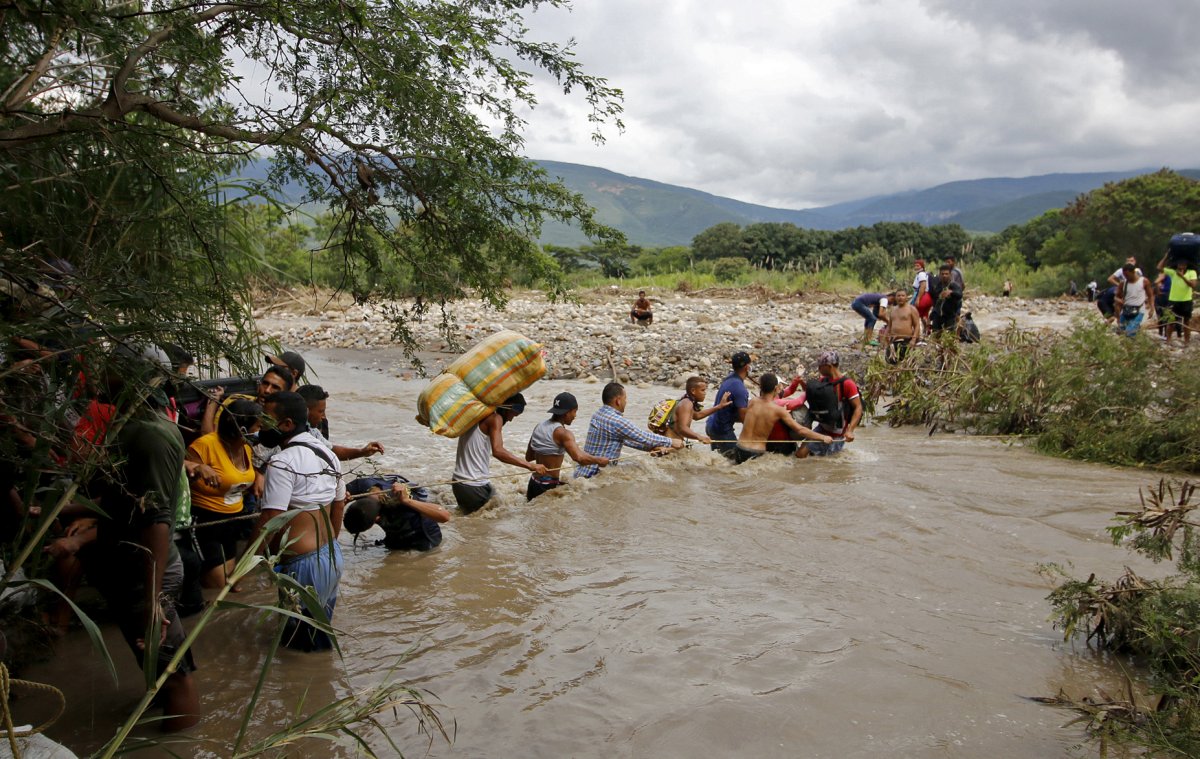U.S. Customs and Border Protection (CBP) apprehended a group of 70 undocumented migrants in Texas' Big Bend National Park on Wednesday that the agency said in a statement consisted of people originating from Venezuela.
The park sits on a portion of the border in West Texas, roughly 300 miles southeast of El Paso. Since November 25, authorities in Big Bend have encountered over 200 migrants, a symptom of the ongoing migration crisis that saw over 164,000 reported encounters during the month of October.
While the 164,000 total represents a high compared to any other monthly figure reported between October 2019 and February 2021, it actually represents a decline in the number of crossings reported since July's high when CBP confronted nearly 214,000 migrants.
The declining number of encounters coincided with a strategy introduced by Vice President Kamala Harris on July 29 aimed to address the root causes of migration abroad by funding humanitarian needs and introducing a task force to battle corruption.

Harris' strategy focuses on Central America's northern triangle of El Salvador, Guatemala, and Honduras where more than half of the migrants encountered by CBP originated from. But while the number of migrants coming from this region has been on the decline, the number of people venturing the U.S. border from Venezuela has been growing.
Since July, the number of Venezuelans encountered by CBP at the Southern border has grown each month. In July, the agency confronted just over 6,100 migrants. In October, that total jumped to over 13,400 total encounters.
The Venezuelan economy has been in decline since former president and leader of the United Socialist Party of Venezuela Hugo Chavez took office in 1999. While Chavez's policies were intended to reduce inequality and to help the country's poor, the Harvard Gazette wrote that they instead put the country on a course of economic decline as corruption in his administration reportedly ran rampant.
The economy has since remained unstable under the leadership of current president and Socialist Party leader Nicolás Maduro, and today the United Nations High Commissioner (UNHCR) for Refugees reported that the country faces "violence, insecurity and threats as well as lack of food, medicine and essential services."
"In the past, Venezuela hosted thousands of refugees from the region and other parts of the world," the UNHCR wrote. "Now the number of Venezuelans compelled to leave their homes continues to increase, and a significant number of them are in need of international protection. Over 4 million Venezuelans have left their country to date, according to data from governments receiving them, making this among the world's biggest recent displacement crises."
Uncommon Knowledge
Newsweek is committed to challenging conventional wisdom and finding connections in the search for common ground.
Newsweek is committed to challenging conventional wisdom and finding connections in the search for common ground.
About the writer
Alex J. Rouhandeh serves as Newsweek's congressional correspondent, reporting from Capitol Hill and the campaign trail. Over his tenure with ... Read more
To read how Newsweek uses AI as a newsroom tool, Click here.








